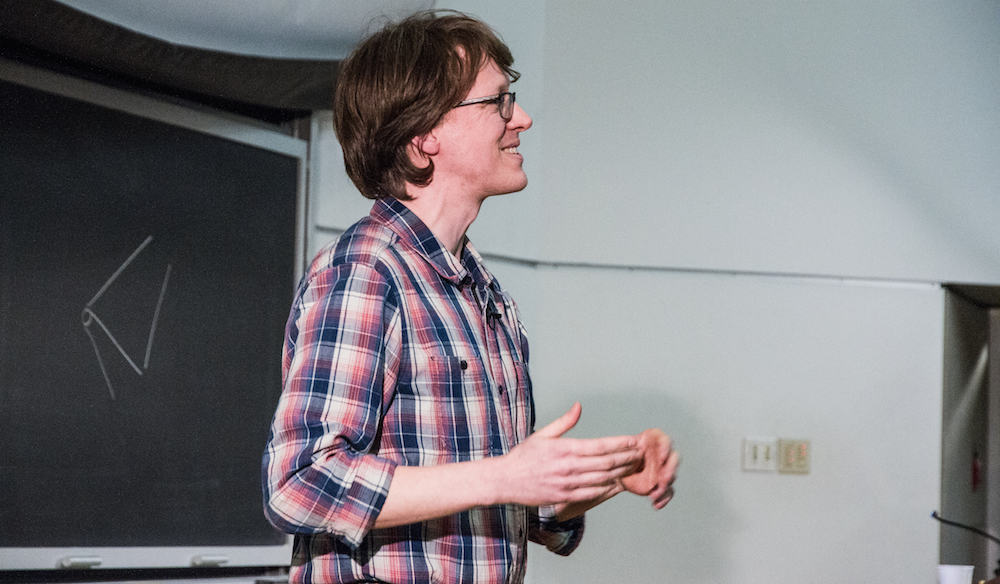On Saturday, March 1, the Jungian Society and the Buddhism and Psychology Student Union (BPSU) hosted their fourth Mind Matters conference at the Earth Sciences building. Titled “Mind Matters IV: The Darkness Within,” this year’s conference focused on the potential conflicts that could arise from attempting practices like meditation — a practice that panelists agreed is commonly believed to be devoid of any risk whatsoever.
“We started the Mind Matters conference in 2011 in collaboration with the Jungian society,” said Sarah Rose Eaman, president of the BPSU. “It is a public platform that offers opportunities for professors and international scholars to share their theories on various issues and themes in psychology. Every year, the response we receive grows and not only from undergraduate students, but also from graduates, professionals, and anyone else interested in the issues discussed.”
This year, the conference was held in the auditorium of the Earth Sciences building, a room with seating availability for 400. Despite tripling the venue size, tickets to the conference sold out within 30 hours.
The conference featured an interdisciplinary panel of six speakers — four of whom are U of T professors. The keynote speaker, Dr. Willoughby Britton, an assistant professor at the Brown University Medical School, kick-started the conference with a presentation on her empirical research study, which examines the difficulties that can arise from practicing meditation. She noted that the average practitioner begins experiencing difficulties at the age of 31. The difficulties range from feelings of disorientation and detachment to cognitive defusion and loss of sense of self. “People assume that meditation is initially frustrating but then gets better with time, but that’s not always the case,” Britton noted.
Following Dr. Britton, the next four speakers were U of T professors. Dr. Jordan Peterson, a clinical psychologist and professor of psychology, took a philosophical approach in his talk “The Darkness Within: Newton vs Darwin.” Here, he argued that humans currently hold a Newtonian worldview due to materialistic rationalism. This view can be problematic, he argued, as it allows humans to reject moral claims and hence ignore the ethical aspect of life.
Dr. Tony Toneatto’s lecture paralleled the points earlier made by Dr. Britton. Toneatto, an associate professor of psychiatry, discussed the idealization of meditation in the western culture and lack of awareness of its potentially harmful effects — especially when taught to children, whose minds are still developing and hence more sensitive to external factors.
Dr. John Vervaeke, a professor of cognitive science, emphasized the role of “relevance realization” in cognition and inner work. Vervaeke explained the role that human cognition plays in our experience with the “ontological mystery,” and highlighted what he perceives to be a “meaning crisis” in our culture.
Dr. Dan Dolderman, a professor of psychology, broke away from the seriousness of the earlier lectures in his more lighthearted talk on his personal experiences with meditation. Dr. Stanton Marlan, a professor at Duquesne University, gave the conference’s second keynote speech. Marlan spoke on Faust and the darkness in the pursuit of truth and enlightenment.
The conference concluded with a Q&A discussion, with questions ranging from the effects of meditation on children to the debate over enlightenment.


